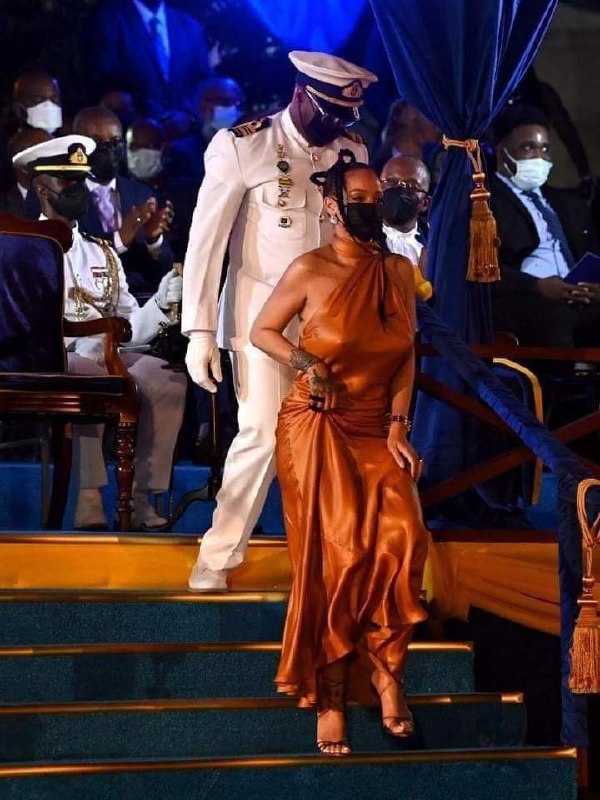Almost 400 years after the first English ship arrived on its golden shores, the former British colony of Barbados woke up Tuesday as a republic.
The tiny Caribbean nation removed Queen Elizabeth II as its head of state in a spectacular ceremony that began late Monday, breaking its ties with the British royal family — and with it, one of the island’s last remaining imperial bonds to the United Kingdom.
The event was held 55 years to the day since Barbados gained full independence but kept the monarch in the ceremonial role.
At the strike of midnight local time, the new republic was born to the cheers of local crowds. The moment was marked by a 21-gun salute and the playing of the Barbadian national anthem.
A dazzling display of fireworks, dance and music was followed by Prime Minister Mia Mottley declaring the singer Rihanna — a Barbadian native, as well as a global star — a national hero.
Sandra Mason, a Barbadian who had served as the Island’s governor general — or queen’s representative — was sworn in as the country’s first president. She was elected to the figurehead post by Parliament last month, but Mottley will continue to run the country.
“It is a monumental step,” Kristina Hinds, a senior lecturer in political science at the University of the West Indies in eastern Barbados, said on a Zoom call from her home in Wanstead, north of the capital, Bridgetown ahead of the ceremony. “I think it is part of the evolution of our independence, and it is certainly long overdue.” NBC reports.
Prince Charles, the heir to the British throne, was in attendance as Barbados celebrated ending its formal links with his 95-year-old mother. Elizabeth is queen of 15 other realms including the United Kingdom, Australia, Canada and Jamaica.
Charles gave a speech saying the creation of the republic “offers a new beginning,” while his mother sent the island her “warmest good wishes” in a statement.
“From the darkest days of our past and the appalling atrocity of slavery which forever stains our history, people of this island forged their path with extraordinary fortitude,” he said
His presence may signal the royal family’s desire to maintain strong bonds with the island, which will remain in the Commonwealth — a voluntary association of 54 states that includes many former British colonies and which the queen has championed throughout her life.
But to Hinds, Charles’ presence is symbolically “a bit odd.”
“It’s problematic for those among us who believe that the British monarchy, as important as it has been for Barbados historically in positive ways, has also caused serious harm to the country,” she said.
In the 17th century, Barbados was claimed by the British and turned into a lucrative colony using the labor of hundreds of thousands of people brought over as slaves from Africa.
It became a major hub for the production of sugar, an increasingly crucial commodity that helped enrich British slave owners.
The island’s present day population of about 287,000 is comprised mostly of the descendants of people brought over as slaves from Africa to work in the plantations.
